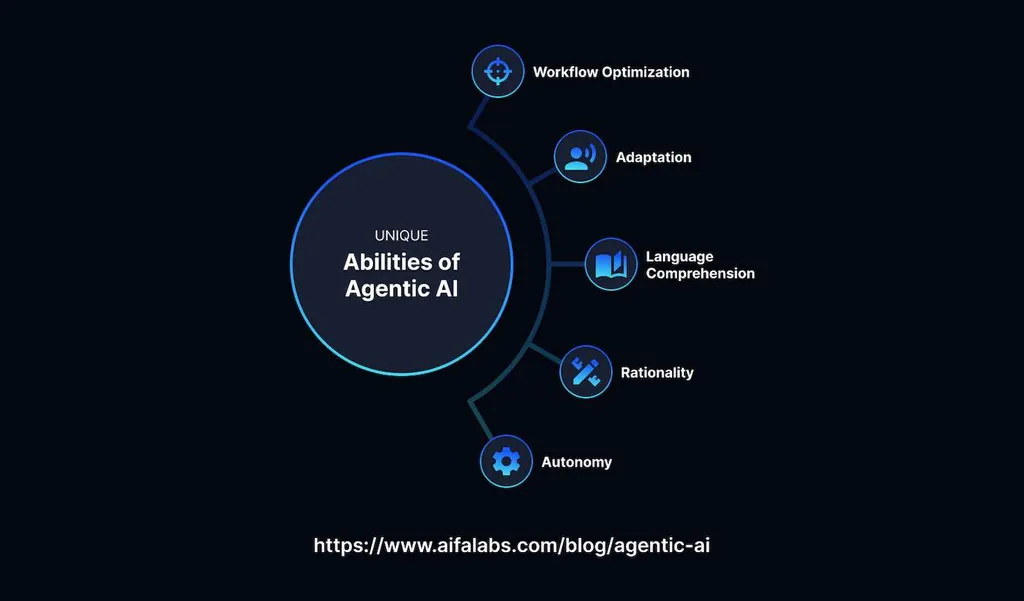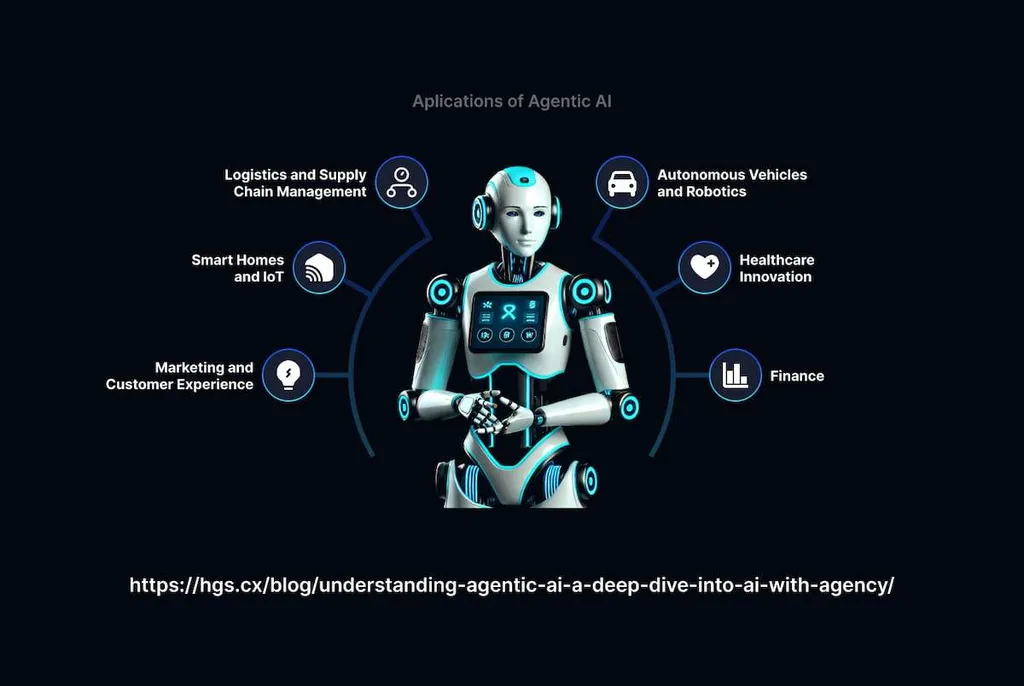The rapid adoption of Artificial Intelligence (AI) solutions motivated companies to embrace innovative approaches to automate their workflows. Recognizing the result-yielding potential of this technology is the first step toward achieving sustainable growth. Staying ahead of the curve requires implementing agentic AI systems. In this guide, we will explore the essential role of AI products in minimizing expenditure and optimizing processes across various industries.
What is Agentic AI?

The term refers to complex platforms based on large language models (LLMs) that manage the performance of agents deployed across various apps. Organizations can utilize an advanced AI model or a basic search tool as an AI agent to help users discover information in knowledge bases. An agentic AI system typically has access to high-quality datasets that include information about a business and its clients.
Major eCommerce platforms were quick to recognize the significance of AI systems. LLM-based solutions enable professionals to access data about orders and payment details, study buyers’ preferences, and expedite complex workflows. Companies deploy AI tools increasingly often, as they allow them to process large volumes of data and make fact-based decisions.
When comparing agentic AI vs generative AI, it becomes noticeable that these technologies differ in complexity. The latter allows AI chatbots to provide timely replies to client queries. The former relies on advanced reasoning to solve multi-step issues and improve a company’s productivity.
How Does Agentic AI Function?
In customer support, agentic AI systems facilitate streamlining complex operations. For instance, AI-powered agents can check a person’s outstanding balance per their request and consult them regarding the steps they need to take. A client can then analyze the provided information and make an independent decision.
The key advantage of agentic AI systems lies in the fact that they process data from various sources, including third-party services, to analyze issues, devise result-yielding strategies, and perform challenging tasks. Companies implement AI features to personalize customer support, expedite software development, and increase client satisfaction.
Agentic AI products follow such steps when solving an issue:
- Data collection: At this stage, AI agents gather information from sensors, apps, and databases. They identify relevant data and extract it for further processing.
- Reasoning: An LLM analyzes tasks and coordinates the functioning of models built for different tasks to produce context-relevant outputs.
- Action: Agentic AI solutions should be integrated with existing infrastructure via APIs to perform the planned tasks. As building products from scratch requires a solid technical background, companies often look for third-party providers. MetaDialog has a team of experts who develop custom LLMs capable of increasing customer support (CS) team productivity by 5 times. These professionals can fine-tune AI agents and set clear escalation guidelines to help them deal with complex issues. When chatbots face a challenging query, they can delegate it to a human agent.
- Learning: Agentic AI systems improve their performance based on analyzed feedback. They analyze information about consumer interactions to learn how to recognize signs of dissatisfaction and solve issues.
Implementing agentic AI features helps businesses improve operational efficiency and achieve strategic goals.
Agentic AI Applications

While customer service automation is one of the most obvious use cases of agentic AI technology, LLM-based products can be deployed across various industries. Businesses that want to get an edge discover innovative ways of leveraging such tools to perform challenging tasks. Below, we have outlined the main areas where agentic AI tools enable ventures to achieve tangible improvements:
- Client support: CS teams utilize AI agents to personalize the provided services, automate routine tasks, solve simple queries, and improve communication processes. After integrating agentic AI solutions with legacy systems, over 50% of firms report measurable improvement in consumer interactions. MetaDialog develops advanced LLMs that enable businesses to reduce the response speed by 2 times and increase client satisfaction by 28%. AI-driven virtual assistants can be taught to communicate in a company’s voice and maintain natural-sounding interactions. They enable businesses to handle increased amounts of queries during peak times without bloating the staff.
- Content generation: Agentic AI tools facilitate the creation of engaging marketing materials. Their deployment allows professionals to spend three hours less on each text on average and fully dedicate themselves to reaching strategic objectives. Spending less on content creation enables businesses to maintain an edge over their competitors. Publishing texts written in an easy-to-recognize brand voice allows firms to engage with their clients on a deeper level.
- Software development: AI systems stand out for their autonomous decision making capacity allowing them to solve convoluted issues. Developers deploy such tools to automate routine coding tasks. By some estimates, AI tools will enable enterprises to automate 30% of their work routines by 2030. It will enable developers to focus on complex issues and fully dedicate themselves to innovations.
- Healthcare: Medical professionals use agentic AI to process large amounts of patient data and extract valuable insights from records. Besides, such solutions enable them to automate time-consuming administrative tasks, and focus on strengthening their connection with patients. As AI agents are available 24/7, it will increase the accessibility of healthcare services. Patients will get recommendations regarding prescribed medicine, schedule appointments, and receive notifications helping them follow treatment plans.
Besides, agentic AI enables professionals to analyze visual information, including videos in multiple languages, generate summaries, create mistake-free reports, perform quality monitoring, and streamline predictive maintenance processes.
Future Developments of Agentic AI
The deployment of efficient business intelligence practices requires integrating agentic AI systems into workflows. Organizations recognize the importance of such tools and utilize them to help employees achieve higher productivity.
As AI agents become more complex, they will demonstrate higher efficiency at extracting information and processing various source types. Their learning capacity is also expected to develop. It will facilitate the creation of responsive agentic AI apps, allowing ventures to increase accountability and foster trust.
Final Thoughts
Due to their unprecedented ability to plan complex processes and coordinate the interaction between various tools and software solutions, agentic AI systems are destined to shape the future of many industries. LLM-based products facilitate increasing productivity, minimizing expenses, and transforming business processes. As technology continues to evolve, enterprises are bound to discover new use cases of AI-powered tools.
MetaDialog helps clients implement agentic AI solutions. As only major corporations have enough funds to develop powerful LLMs, outsourcing this task to a trusted provider is a cost-saving alternative for those who value their time and money. We devise solutions to help firms reduce the average response time to 20 seconds and build AI-based systems serving customers 24/7. Get in touch with our team now and discover how to leverage the power of agentic AI to scale up your operations.
